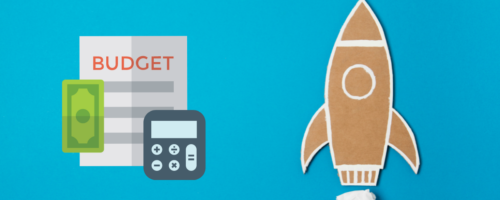
Personal Finance Tips for Beginners: A Starter Guide
Ready to take charge of your money? Discover expert personal finance tips for beginners, from budgeting basics to smart savings and debt management strategies!
Saving for a rainy day isn’t just an old adage; it’s essential financial advice that holds true across generations. In today’s unpredictable economic climate, having a cushion to fall back on in the event of job loss or a financial crisis can be the difference between weathering the storm and being swept away by it. While saving may seem daunting—especially when balancing debt repayment—it is entirely feasible with strategic planning and smart tools at your disposal.
A common misconception is that you must choose between paying off debt and saving money. However, these goals are not mutually exclusive. By effectively managing your debts—paying them off faster and saving on interest—you can free up more funds for savings over time.
MyEarnUp simplifies this process by automating your debt payments, ensuring they’re made on time every month without fail. This not only helps improve your credit score but also reduces the amount of interest paid over time by potentially allowing for earlier payoff dates. The money saved from reduced interest payments becomes extra capital that can bolster your emergency fund or savings account.
Life throws curveballs. From unexpected car repairs to medical bills, emergencies can derail even the best financial plans. But fear not! Here’s your roadmap to financial security with 15 actionable tips to build your savings and that all-important rainy-day fund. Whether you’re starting from scratch or looking to boost your existing savings, this guide will equip you with strategies to save consistently, manage your spending wisely, and face the future with financial peace of mind. Let’s dive in and get you prepared for whatever life throws your way!
By tackling your debt with MyEarnUp, you’ll not only become debt-free faster, but you’ll also save on interest payments. This frees up more money in the long run to channel directly into your rainy-day fund, preparing you for whatever life throws your way.


Ready to take charge of your money? Discover expert personal finance tips for beginners, from budgeting basics to smart savings and debt management strategies!

Get easy-to-follow personal finance advice to get control of your money today, from simple budgeting techniques to debt management and wise investment strategies.

Discover the ins and outs of the zero-based budget, a budgeting system that gives every dollar a purpose. Learn about its strengths and weaknesses.








Disclosures
¹Interest and loan term reduction are calculated based on the requirement of additional deductions and payments made towards the loan principal over the life of the loan. The loan must be paid to completion with no defaults or payment errors on the account in order to realize the savings. Savings may vary based on your unique EarnUp Program.
² In some circumstances, loans may require that outstanding items, such as escrow (for property taxes and insurance), late fees, or past-due payments, must be paid before funds can be applied to principal. These are determined based on the terms of your specific loan and are applied by your loan servicer.
³ Testimonials are individual experiences and results vary.
* Money transmission services provided by EarnUp partner financial institutions. The applicable EarnUp partner financial institution is the only entity authorized to initiate or execute payments and transfers on your behalf. At no time will EarnUp receive, control, or hold your funds.
**NOT A CREDIT REPAIR ORGANIZATION OR CONTRACT. EarnUp is not a credit repair organization, or similarly regulated organization under other applicable law and does not provide any form of credit repair advice or counseling. EarnUp is not a lender or provider of credit cards. EarnUp helps users to manage their debt, minimize interest fees, or automate smarter budgeting.
EarnUp Inc.
2370 Market St Ste 203
San Francisco, CA 94114-1521 USA
800-209-9700


PayItOff is a feature of MyEarnUp that allows you to locate your loans. Please complete the form below to access our student loan tool and receive comprehensive information regarding your student loan account and savings opportunities.
Pay it Forward, Keep it a No Cost Feature!
We rely on voluntary payments from our users to continue offering our loan location service at no cost. After you find your loans, we will contact you with information on how you can make a voluntary payment to pay it forward.